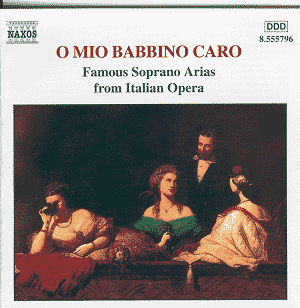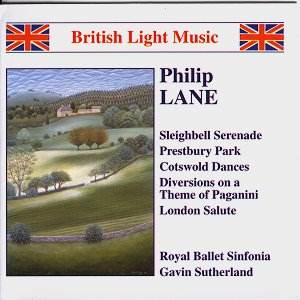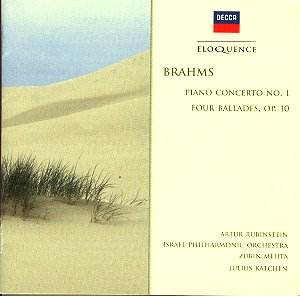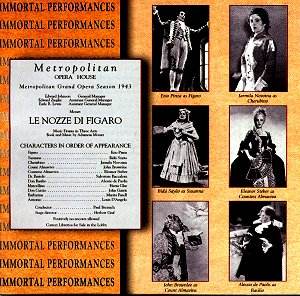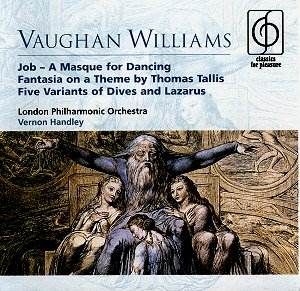 Composer: Ralph Vaughan Williams
Composer: Ralph Vaughan Williams
Works: Fantasia on a Theme of Thomas Tallis, Five Variants of ‘Dives and Lazarus’, Job – A Masque for Dancing
Performers: London Philharmonic Orchestra, Vernon Handley (conductor)
Recording: Recorded in the Fairfield Halls, Croydon on 3 and 4 December 1973 (Tallis) and at St Augustine’s Church, Kilburn on 24 and 25 June 1985 and 14 and 15 December 1983
Label: EMI CLASSICS FOR PLEASURE
Ralph Vaughan Williams occupies a unique position in the pantheon of British composers, seamlessly weaving the threads of folk melody and pastoral elegance into the fabric of his orchestral writing. His works, such as the Fantasia on a Theme of Thomas Tallis, are not merely musical compositions but rather profound explorations of the human experience, reflecting the cultural and spiritual landscape of early 20th-century Britain. This recording, conducted by Vernon Handley, is a testament to Williams’s masterful synthesis of tradition and innovation, showcasing the composer’s deep reverence for English musical heritage while simultaneously pushing towards modernity.
Handley’s interpretation of the Fantasia on a Theme of Thomas Tallis offers a striking balance between ethereal lyricism and structural rigor. The performance unfolds with an almost celestial quality, accentuated by the lush string textures that Handley draws from the London Philharmonic Orchestra. The acoustics of Croydon’s Fairfield Halls, while not as hallowed as a cathedral, resonate effectively with the piece’s inherent spirituality, capturing the work’s essence beautifully. The climactic moments, particularly the transition into the third section, are executed with an intensity that evokes a sense of transcendence, a hallmark of Williams’s intent, which is often rooted in the natural and the mystical.
Following the Tallis, the Five Variants of ‘Dives and Lazarus’ serves as an exquisite bridge to the next work. The seamless pacing Handley achieves here is commendable, each variant unfolding organically, with the third variant’s rich climax standing out for its emotional depth. The interplay between strings and harp is deftly rendered, allowing the folk tune’s inherent simplicity to blossom into a complex tapestry of sound. This performance encapsulates Williams’s ability to transform folk material into something that is at once accessible and profound, offering listeners both familiarity and surprise.
The final work, Job – A Masque for Dancing, reflects Vaughan Williams’s willingness to embrace a myriad of styles, from folksong to dance forms reminiscent of the Elizabethan era. This recording captures the dynamism of the score, highlighting the choreography of the orchestral textures and the vibrant colors that Handley elicits from the musicians. The work’s structure, based on Blake’s engravings, provides a unique canvas for orchestral expression, and the interpretation here is compelling, demonstrating a keen understanding of both the narrative and the musical language. Handley’s commitment to the score ensures that the work’s eclecticism is not merely a collection of styles but a coherent exploration of the themes of creation and destruction.
The engineering of this recording merits attention as well. The clarity of the orchestral sound, particularly in the string sections, allows for both the subtle nuances and the grander gestures of Vaughan Williams’s writing to emerge with fidelity. The engineering captures the spaciousness essential to the Tallis Fantasia while providing an intimate setting for the more intricate passages in the Five Variants and Job. Comparatively, while other notable recordings, such as those by Sir Adrian Boult, offer their own insights, Handley’s interpretation is distinguished by its emotional immediacy and thoughtful pacing.
This reissue of Handley’s interpretations captures the essence of Vaughan Williams’s music with a freshness that resonates with both seasoned listeners and newcomers alike. The performances are imbued with a sense of purpose and understanding, illuminating the profundity of Vaughan Williams’s vision. Handley’s deep connection to the music and the exceptional musicianship of the London Philharmonic Orchestra ultimately render this recording an essential listening experience for anyone wishing to delve into the heart of British music in the 20th century.
